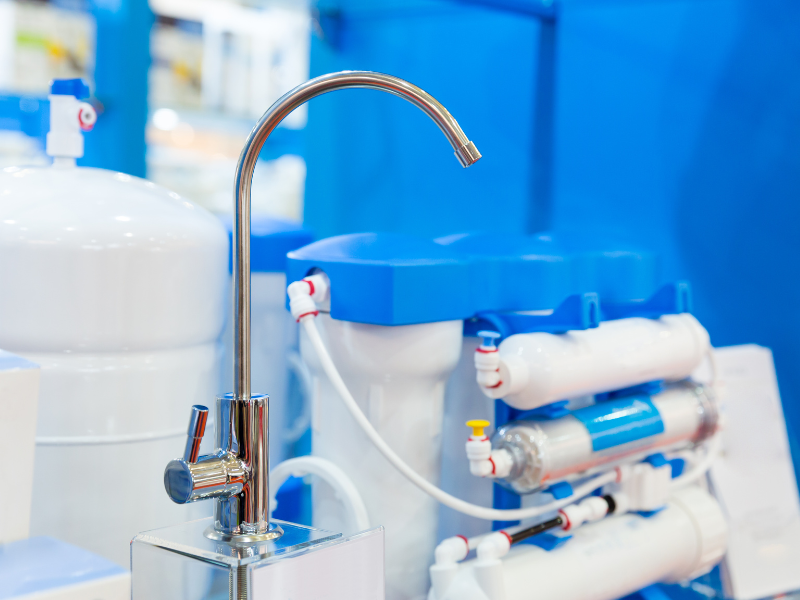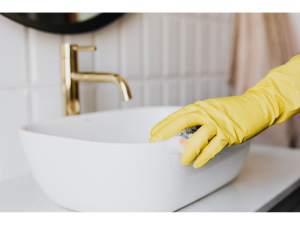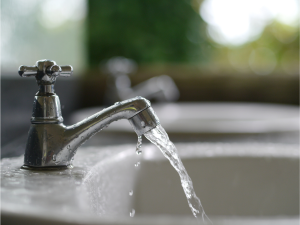When it comes to our homes and businesses, we often find that water is a much needed commodity. Whether it’s used for cleaning the furniture and glass in our surroundings for another day of work or cooking and cleaning ourselves at home, we rely on clean and safe water for a lot of our daily needs. As often as we use air conditioners and heaters, there are always times when we don’t need to focus on heating or cooling.
But, with the human need for water, the need for a water filter or a water softener is much more important. One question frequently crops up, though, especially when it comes to the time for a replacement; what’s the difference between a water softener vs water filter?
To those that aren’t already aware of the main differences between them or haven’t had the chance to learn what they do, the uses and systems for both a water filtration system vs water softener can be quite similar. So when it comes to getting a new one installed or replaced, knowing whether you need a water filter or a water softener can be difficult.
Fortunately, the similarities aren’t all that many, making the differences between your home or business’ water softener vs water filter just as simple. We’ve covered the main differences between the two and which one you should get if you’re looking for replacements or a new model. Then just call Clover Contracting to help you install it, no matter the day of the week or the time!
What is a water softener?
If you’ve ever heard of hard water before, either in one of your old science classes or while looking for new appliances or even a new home, chances are you already have some idea of what a water softener does.
The main function a water softener has is to remove any excess chemicals or minerals your home’s water supply might have. While hard water can be somewhat beneficial to you and your family, it can cause dirt and even damage to happen in your plumbing and other pipes.
Hard water, as mentioned, is a mixture of a few chemicals and minerals, mainly created when the water runs by mineral deposits. Since most of the hard water content is minerals, the water is entirely safe to drink and can even be beneficial to the human body even though there are quite a few different kinds of minerals in it.
Though scum and grime can happen in your pipes and around the drains in your home, it’s only created when the hard water comes into contact with soap and other similar materials. With how hard it is to predict the scum from forming, many houses in areas with hard water are either provided with or already have a water softener installed.
What is a water filter?
A water filter – sometimes referred to as a water filtration system – works in a similar, but different way to a water softener.
While a water softener’s use is to remove any excess minerals from the water, a water filter removes any contaminants, debris and any dissolved solids that might be in the water your house gets. This isn’t limited to just the minerals in the water.
Any harmful contaminants, like lead or bacteria, gets filtered out to ensure that the water is safe. Then, once it’s properly cleaned, the water’s distributed to your faucets and showerheads to be used.
The difference between the two
Between a water softener vs water filter, the difference is quite clear. Even though both water softeners and water filters remove the fine debris from the water, they don’t clean the same way. Water softeners specifically clean out minerals, such as excess calcium and magnesium, and end up leaving the other potentially more harmful contaminants in it.
Water filters, on the other hand, do clean out the contaminants. Having a functioning and clean water filtration system ensures that the water that comes through your faucets is entirely safe to be used for drinking and cooking.
Water softener vs water filtration systems: Which one should you get?
If you’re entirely sure that your residential area has hard water and you’re looking to get a new system installed or replace some of the parts in your current one, the question of which to prioritize between your water filter vs water softener can be difficult.
However, always invest in your water filter first, since it’s the most important system in your house or business. More often than not, buildings with water softeners also have a water filtration system somewhere inside it. But even if your building only has a water filter, your focus and priority should be on that system.
As we mentioned, many of the minerals in hard water aren’t toxic or deadly to you. Though they can cause soap scum and scale, you can always clean it up if it builds up to a point that you don’t like it. However, you can never know how truly clean the water you get is.
While your local purification plant does properly clean it of any potential hazards and contaminants, the water can always get recontaminated or get more debris as it’s moved to your home. So having a water filter system in place guarantees that those contaminants are removed.
If you’re considering whether or not to invest in a water softener on top of your existing water filter, though, do be aware of one main factor.
While water filters clean out the debris and contaminants, they also remove minerals out of water as well. This doesn’t mean that you don’t have to get a softener. Scaling and soap scum can still happen if you have a water filter, since the system doesn’t remove the same level of minerals that a water softener does.
Conclusion
At the end of the day, always invest in your home or business’ water filter system. While both water filters and water softeners remove particles, a softener system only removes the calcium and magnesium. To get safe and clean water for daily cooking, cleaning and drinking, keep your water filter up to date with its maintenance and call Clover Contracting for help.




